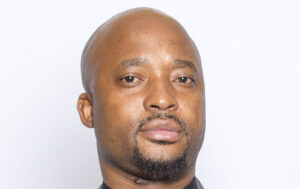
The Health and Wellness Portfolio Committee comprised of multi-party members of the Provincial Legislature recently conducted a focused intervention study to evaluate the pressure points and operational efficiency of oncology services across Gauteng Province. The visits, carried out from 22 October to 23 October 2024, included key central hospitals: Dr. George Mukhari Academic, Steve Biko Academic, Charlotte Maxeke Johannesburg Academic, and Nelson Mandela Children’s Hospitals.
This initiative provided the Committee with a deeper understanding of the complex challenges involved in delivering cancer treatment and care within the public healthcare sector. Contrary to perceptions, oncology services require sophisticated coordination, far beyond what is often assumed.
Key Findings and Challenges:
Treatments Expanding Beyond Gauteng and South Africa
Oncology services at these central hospitals extend not only beyond the province but also across national borders, offering highly specialized care that is difficult to replicate at tertiary and district hospitals, which often lack essential surgical, diagnostic, and pathological capabilities.
Consequently, these hospitals face a high volume of referrals from other provinces, such as Northwest, Limpopo, and Mpumalanga, further straining an already overburdened system. The allocation of beds becomes increasingly complex as they accommodate patients from outside Gauteng, who are likely to require inpatient care based on clinical treatment guidelines, particularly due to their proximity to the hospitals.

With a population of over 15 million, Gauteng bears the highest cancer care burden in South Africa. The central hospitals, originally not designed to accommodate the current patient load, are now stretched beyond capacity in providing both cancer treatment and overall healthcare services. Additionally, the backlog is exacerbated by the significant number of foreign nationals seeking cancer treatment and other healthcare services in these facilities. Over R700 million is currently owed to Charlotte Maxeke Academic Hospital, while at Steve Biko Academic, the bill stands at over R400 million for the treatment of foreign nationals; further intensifying the financial strain on the system.
Human Resource Planning
The Committee observed that the human resource planning for oncology services is outdated and does not meet the growing demands of Gauteng’s population. This mismatch has led to significant pressure on healthcare professionals, with unfavourable staff-to-patient ratios affecting service delivery.
Additionally, there is a critical shortage of oncology, radiology, and other specialized healthcare workers, compounded by the private sector’s ability to offer more competitive compensation for these sought-after skills. The Occupation Specific Dispensation (OSD) in the health sector, a national competency, directly impacts the retention of scarce skills in public healthcare. This impact was clearly illustrated at one of the hospitals where one of the major contributions to the backlog was owed to the shortage of specialised nurses in the operating theatres and Intensive Care Units. These nurses play a crucial role in the value chain of cancer treatment and care.
The Committee urges the Department of Health to fast-track the approval and implementation of revised staffing plans, already proposed by hospitals, to address these shortages. While the Committee recognizes the budget constraints caused by austerity measures, addressing the critical need for specialised personnel must remain a top priority to meet growing healthcare demands.
Infrastructure needs
Gauteng historically had only two main radiology centres. However, the Committee was encouraged to see that Dr. George Mukhari Hospital is advancing plans to construct an additional oncology facility. Once completed, this facility will relieve pressure on existing services and enhance treatment capacity for cancer patients. However, it is essential to ensure that infrastructure expansions are matched by an increase in specialized personnel to operate the facility effectively.
The Committee will closely monitor the project’s progress to ensure it meets deadlines and improves access to care.
The Committee now fully understands the multi-faceted factors contributing to the backlog in oncology services. The entire value chain—from diagnosis to treatment—requires a coordinated approach, guided by clinical guidelines. With limited institutions providing cancer care, the burden on these facilities is inevitable. As the National Health Insurance (NHI) implementation progresses, it is expected that greater cooperation and system improvements will help address some of the current challenges in the healthcare sector.
Appreciation of Healthcare Professionals
The tireless efforts of healthcare workers who continue to deliver essential oncology services under immense pressure is admirable. Their unwavering commitment to patient care, despite resource limitations, reflects their professionalism and compassion. The Committee and the broader community deeply appreciate their dedication.
“We remain committed to supporting Gauteng’s healthcare system and will continue working with the Department of Health to tackle these challenges. Our goal is to enhance oncology services, ensuring all patients receive the high-quality care they deserve, despite the complexities involved in providing such specialized treatment,” concluded Adv. Ezra Letsoalo, Chairperson of the Health and Wellness Portfolio Committee.
INFO SUPPLIED.

